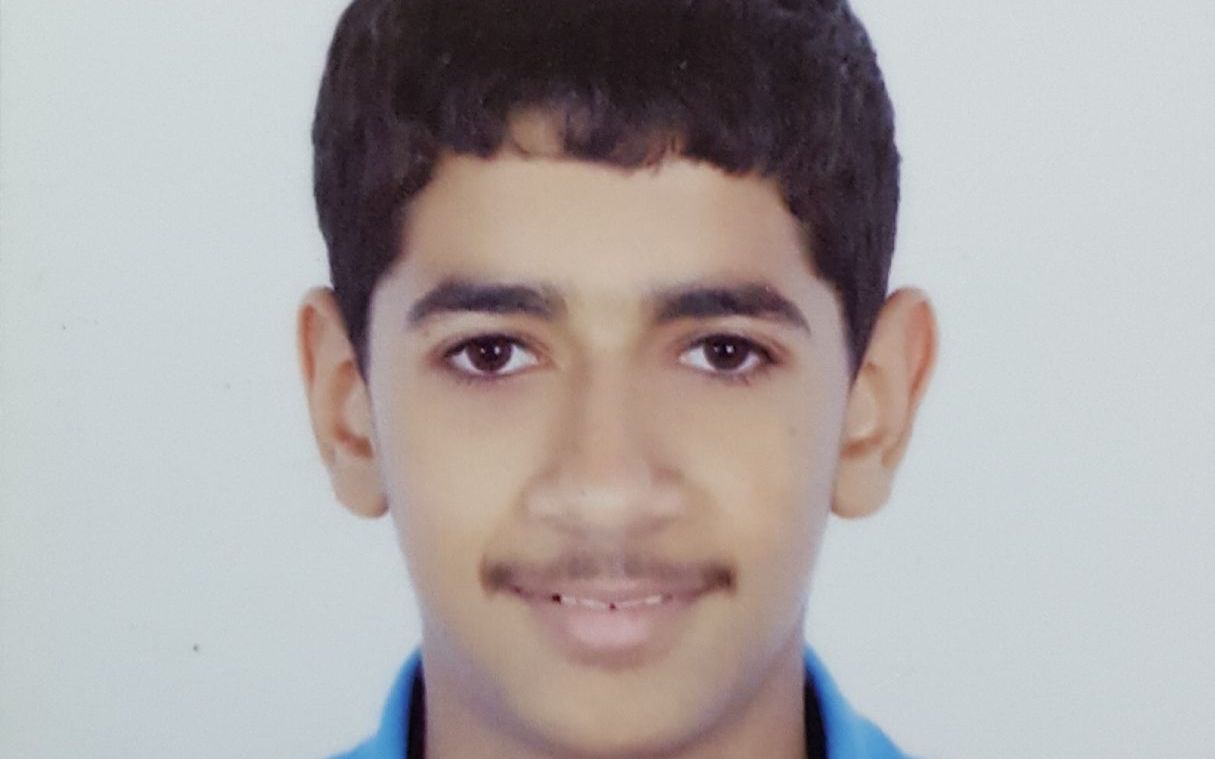
Mohamed Ebrahim Ali is a 16-year-old high school student in Bahrain. At 6:00 in the morning on 22 July 2017, Bahraini security officers forced their way into his family’s home, searched it from top to bottom, and took Mohamed away. Though no one has been able to visit him since he was detained, all available evidence indicates that he has been tortured in detention.
Mohamed lives with his parents and sisters in the village of al-Budaiya. His father was away traveling on the day the security forces knocked on their door. His mother asked them not to enter as there was no man in the home, but they disregarded her. The government agents who entered the home were masked, wore civilian clothing, could not be identified by badges or insignia, and did not present any warrant – all of which conforms to the standard practice of unlawful home raids conducted by security forces in Bahrain. One officer, however, had a jacket bearing the emblem of the Ministry of Interior, the agency that oversees the kingdom’s police and is responsible for the overwhelming majority of abusive detentions that ADHRB has documented over the years.
Because the security forces did not present a warrant or explain who or what they were looking for, it is impossible to know why they took Mohamed after searching the home and finding nothing unusual. Mohamed’s mother protested and asked why they were taking her son, but received no answer. They drove away with him in an unmarked civilian vehicle.
To date, neither Mohamed’s family nor the attorney they have hired to represent him have received any explanation for the arrest. What little is known about his situation is as follows. He was initially taken to the police station in the north of Hamad Town, where he was held for a week until, on 30 July, he was brought before the Office of Public Prosecution (OPP). After his appearance before the OPP, Mohamed called his family and told them he was being transferred to Dry Dock Detention Center. Though Mohamed’s lawyer had asked to be informed when his client was presented to the prosecutor – and had sent a formal letter making this request to every department of the OPP – the defense counsel was never contacted.
Aside from its inconsistency with Article 14.3(b) of the International Covenant on Civil and Political Rights, to which Bahrain has acceded, the OPP’s behavior also violates Bahrain’s own domestic law. Article 146 of Bahrain’s Code of Criminal Procedure states that a suspect has the “right to contact his defense at any time.” Nevertheless, the prosecutor’s office ordered Mohamed held for 30 days pending investigation. Though it remains unclear what in fact is being investigated, the length of what Bahraini law refers to as “preventive detention” (Arabic: al-ḥabs al-iḥtiyāṭī) indicates that Mohamed will be charged with “terrorism” or “national security” crimes. (The period of pre-indictment detention is limited to one week for ordinary crimes.) It has become increasingly routine for Bahraini authorities to charge human rights defenders and political activists – or even ordinary citizens detained by mistake or at random – with baseless terror offenses, and the government’s broad list of “national security” crimes includes “unlawful assembly” (Art. 178 of the Penal Code), i.e., public protest.
Other detainees who have seen Mohamed in custody have reported that he was tortured into giving a confession, and that his face is visibly swollen from being beaten. Without access by defense counsel or independent monitors, further details remain unknown.
ADHRB has raised Mohamed’s case before several UN special procedures offices. As noted, Bahrain’s conduct is contrary to treaty law it has endorsed, as well as to its own domestic law. With no evidence presented against Mohamed – and, indeed, no known charges or even accusations raised against him – the presumption of innocence stands. ADHRB therefore calls on Bahrain to release him immediately and to conduct its security operations according to due process of law, which would mean a lawful arrest authorized by warrant and based on concrete criminal charges. We further urge international bodies and states holding influence with Bahrain – such as its allies in Washington and London – to press the government to reform the repressive “counterterrorism” laws and institutional practices that facilitate human rights abuses.





